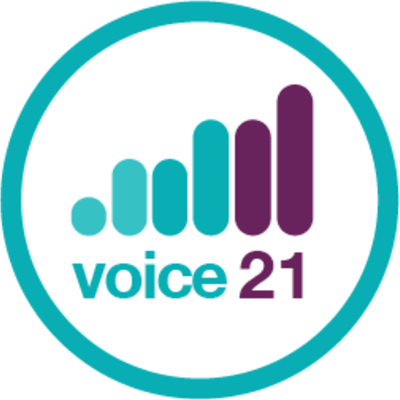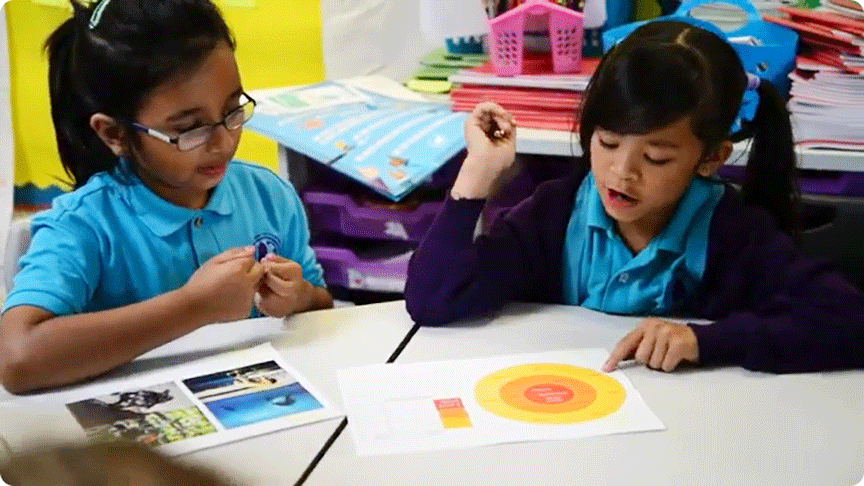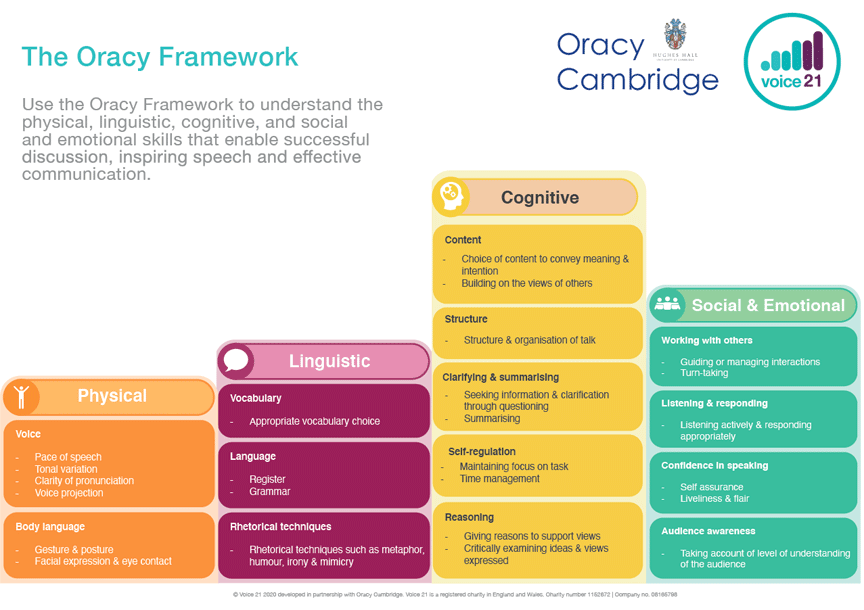Oracy at Herrick
What is oracy?
Oracy is articulating ideas, developing understanding and engaging with others through speaking, listening and communication. It comprises learning to, through and about talk, listening and communication.
Our Oracy Vision
Oracy enables our children to articulate their thoughts and feelings, to engage with different perspectives respectfully, and talk about their learning. We encourage our children to engage in discussions and to respond to different perspectives. Children are taught how to both listen and respond to their peers. Children at Herrick are taught how to present to a variety of audiences. Opportunities for Oracy are promoted inside and outside of the classroom. Our aim is for children to improve their oracy through developing their physical, cognitive, linguistic and social and emotional skills.
Who are Voice 21?
Herrick Primary School are taking part in the Voice 21 Oracy programme. Voice 21 equips educators with the oracy expertise to transform their students' learning and life chances through talk. Voice 21 support schools to build oracy into the curriculum, teaching and learning and wider school life. Oracy skills set children up for success in school and life.
Voice 21 - Oracy - Who we are
The Oracy Framework:
Voice 21 sets out four strands of oracy - Physical, Linguistic, Cognitive and Social and Emotional.
‘Physical’ includes elements such as voice projection, using eye contact and gesture. Children learn about how we use our voice and body to communicate.
‘Linguistic’ involves using appropriate vocabulary and choosing the right language for different occasions. Children learn about how we structure what we say and how to choose appropriate vocabulary.
‘Cognitive’ is about organising the content of your speech. Here, children think about what we say, how to ask appropriate questions and how to explain their opinion.
‘Social and emotional ’ includes working with others, taking turns and developing confidence in speaking. Children learn how to listen to others and how to respond.
Speaking in Full Sentences
Teachers speak in full sentences and encourage pupils to do the same. Sentence stems and sentence starters are shared to support the development of speech and talk, as well as to promote our children speaking in complete sentences.
Supporting Communication (NHS Information)
- Children learn language by hearing how words and sentences are used.
- The best thing you can do is keep the conversation going.
- Talk naturally and children will pick up and start using words on their own without even realising they’re learning!
- Talking with your child when you're out and about is a great way to help them learn new words.
- Pay attention to what catches their eye or what they're curious about. For example, if they notice a bird and say, "Bird," you can add some extra words to this and say, "Yes! a little bird is flying!" or "The bird is singing". This helps them hear new words and learn how they fit together in sentences.
- Encouragement goes a long way! Praising your child builds their confidence and makes them excited to try more.
How can Parents and Carers help at home?
There are a variety of ways in which you can help to develop your child’s oracy skills.
Read aloud to your child
Reading aloud to your child helps them to learn new vocabulary and provides them with opportunities to express their thoughts about the book. Ask your child questions about the story or topic, and encourage them to share their opinions or predictions about what may happen next.
Playing word games
There are a variety of words games that can be played which provide opportunities for children to use descriptive language. These include 20 Questions, Yes or No, Guess Who? and I Spy.
Talk about their day
Often when asking “did you have a good day” a quick answer of yes follows without any information about the day itself! Asking open-ended questions such “What made you feel happy today?” helps children to reflect on their day and should encourage them to provide a more detail answer. Listening carefully to their answer could provide opportunities for follow up questions.
Power Thoughts provide alternative questions you can ask you child to find out how their day went.
Curiosity Cubes
Our Herrick classrooms all feature a Curiosity Cube. Curiosity cubes are a great way to promote curiosity, communication and exploration. A curiosity cube is a clear box that has items in for the children to look at and talk about. See if your children can tell you which item is currently in their classroom curiosity cube! Below are photos of Herrick curiosity cubes.



















For more information about oracy, please visit the
Below you will find a variety of oracy resources that we are using here at Herrick.
Discussion Guidelines
Listening Ladder
Oracy sentence stems
Proof of listening poster
Speak Like a Specialist
Student Talk Tactics
Teacher Talk Tactics
The Oracy Framework
Voice21 TalkDetectives 1
Volume Indicator







